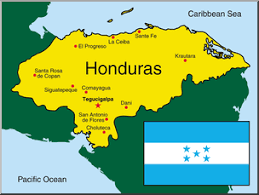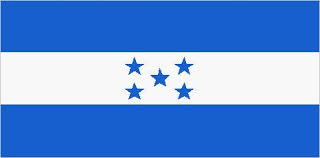1. Honduras means “depths” in Spanish and most likely refers to the Bay of Trujillo’s deep waters. The apocryphal story is that Christopher Columbus, after surviving a tropical storm and docking in what is now Trujillo, exclaimed, “Thank God we have escaped these treacherous depths!” and named the area Honduras.

2. The country’s Bay Islands sit on the second-largest coral reef in the world.
3. Honduras’ Mosquito Coast isn’t named after the insect but the indigenous Meskito people. When the British came, their pronunciation attempts begat “mosquito.”
4. The Copán Ruins in western Honduras preserve what was once one of the most densely populated cities in Mayan civilization. The ruins were named a UNESCO World Heritage Site in 1980.

5. There are more than 200 species of mammals in Honduras; a little more than half are bats.
6. In the center of the Honduran flag sit five stars—one for each country of the former United Provinces of Central America. The two blue stripes represent the Caribbean Sea and the Pacific Ocean.

7. Expatriates send $4 billion in remittances back to Honduras every year. For context, Honduras’ gross domestic product is about $22 billion.
8. In 1969, Honduras and El Salvador fought a one-month war known as the Football War, because it coincided with riots around during FIFA World Cup qualifying games between the two countries.
9. Short story author O. Henry coined the term “banana republic” while in Honduras, writing about the fictional Anchuria, a stand-in for Honduras.
10. In 2011, the Honduran government passed a law banning smoking in closed spaces, both private and public, and requiring smokers to stand at least six feet away from nonsmokers in any open space. Under the provision, family members or even visitors who are bothered by second-hand smoke can call the police to stop someone from smoking in his or her own home.